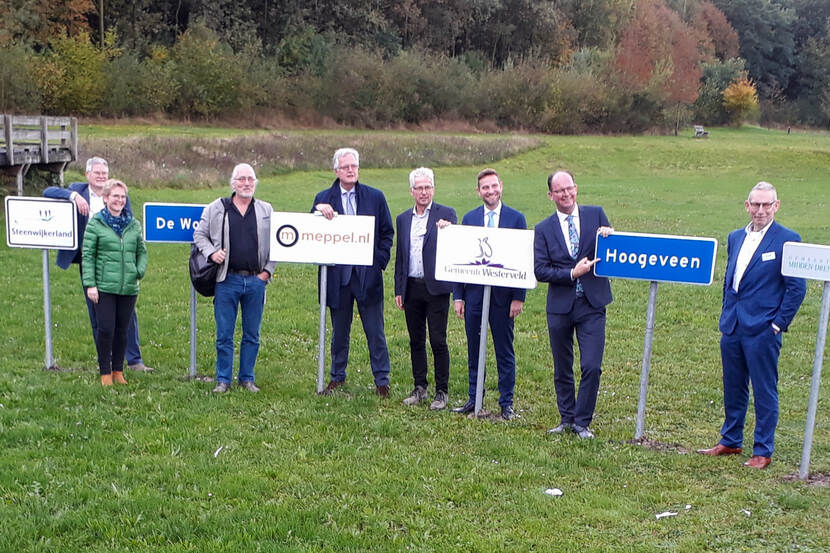Delta Programme Commissioner on working visit to Drenthe
On Monday, 14 October Delta Programme Commissioner Peter Glas paid a working visit to FLUVIUS, a collaborative set-up in the southwestern part of the province of Drenthe and the northern part of the province of Overijssel. He was welcomed in the village of Darp, where the municipality, the provincial authorities and the district water board have joined forces with local residents, housing corporations, and the Vitens water company to render the village water-resilient, in order to be better prepared for extreme weather conditions. ‘You have demonstrated the power of collaboration. Use this power, by adopting this same approach to similar issues,’ Peter Glas urged, following his visit.

How can we climate-proof villages, cities, and rural areas? How can we prevent issues such as waterlogging or, conversely, drought from causing damage? Governments and residents are faced with a major collective task, viz. adapting to climate changes. This regional collaboration has demonstrated that tackling such issues in concert with local residents and government bodies will produce good results.
Delta Plan on Spatial Adaptation
Climate change is adding to the probability of extreme weather conditions, such as waterlogging, heat, drought, and urban flooding. This poses risks to our health, our safety, and the economy. Climate-proof and water-resilient planning must become a matter of course in spatial (re)developments. The Delta Plan on Spatial Adaptation sets out how municipalities, district water boards, provinces, and the national government will be addressing this issue in concert, divided across 42 Working Regions. In the Southwest Drenthe and North Overijssel Working Region, these efforts are being expended under the name of FLUVIUS.
Water as an element of environmental visions
During his visit, the Delta Programme Commissioner emphasised the importance of water as a standard element in environmental visions. The municipalities of Westerveld, Hoogeveen, De Wolden, Midden-Drenthe, Steenwijkerland, and Meppel, the Drents Overijsselse Delta district water board, and the provinces of Drenthe and Overijssel have embraced this body of thought, as manifest from the many examples that the aldermen and administrators exchanged during the visit. The walking tour through the village of Darp highlighted both the underlying vision and its implementation: forest edges have made way for wadis and the village has taken various other measures, such as a separated sewer system. Not only has this reduced the risk of waterlogging, it has also resulted in a healthier and more pleasant living environment.
Afterwards, Peter Glas concluded: ‘The stress tests in this region have been completed and offer concrete points of departure for ensuring that the area will be climate-proof and water-resilient by 2030. Please make good use of your proven collaboration and transfer this approach to other issues that we – as governments – are faced with.’